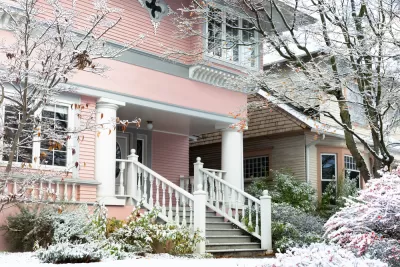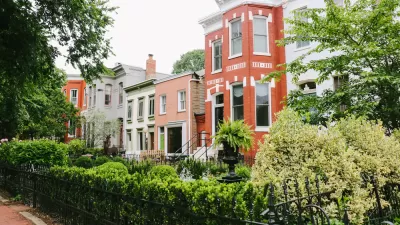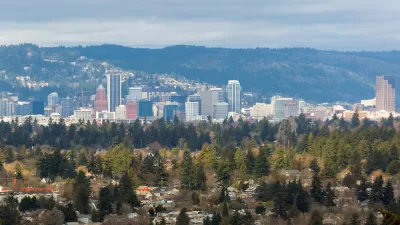Seattle is the latest in a series of cities, states, and counties to alter the landscape of land use regulation by approving what the Sightline Institute describes as the "most progressive" ADU policy in the United States.

Seattle has approved a landmark law that would both allow the developments of accessory dwelling units and limit the size of single-family residential projects. Planetizen referred to the law in May as ADUs for mansionization control, and a "two-birds-with-one stone" situation.
Dan Bertolet and Margaret Morales broke the news shortly after the Seattle City Council unanimously approved the law yesterday, and provide the context to appreciate the scope of Seattle's legislative accomplishment for the potential of adding new residential density to the city:
The adopted changes amount to the most progressive ADU policy in the US. By boosting the addition of ADU homes in the three-quarters of Seattle’s residential land reserved for expensive, single-detached houses, the new rules will lower the invisible walls of economic exclusion, and make the city greener too.
Bertolet and Morales also describe the effect of the law at the other end of the spectrum:
The legislation’s house size limit of 2,500 square feet on a typical lot will make it more attractive to add ADUs to existing houses instead of tearing those houses down. And when teardowns inevitably occur—as they already do under the status quo—the size cap will provide a new incentive to build ADUs along with the new house. Neighborhoods will see fewer teardowns replaced by McMansions and more modest, mixed-income options.
The article also details the political process that yielded the final law, which includes last-minute deal making and a four-year build up. The article also expresses support for the new law, listing the potential affordability and environmental benefits of the additional density enabled by the law. Despite calling the new law "the best" ADUs regulations in the country, Bertolet and Morales still share a few tweaks that could make the law "even better."
The news from Seattle comes shortly after Oregon passed landmark legislation that ends single-family zoning in most cities in the state, allowing duplexes, triplexes, and fourplexes for all properties zoned for single-family residential in cities over 25,000.
FULL STORY: SEATTLE SAYS YES TO THE BEST RULES IN AMERICA FOR BACKYARD COTTAGES

Planetizen Federal Action Tracker
A weekly monitor of how Trump’s orders and actions are impacting planners and planning in America.

Map: Where Senate Republicans Want to Sell Your Public Lands
For public land advocates, the Senate Republicans’ proposal to sell millions of acres of public land in the West is “the biggest fight of their careers.”

Restaurant Patios Were a Pandemic Win — Why Were They so Hard to Keep?
Social distancing requirements and changes in travel patterns prompted cities to pilot new uses for street and sidewalk space. Then it got complicated.

California Homeless Arrests, Citations Spike After Ruling
An investigation reveals that anti-homeless actions increased up to 500% after Grants Pass v. Johnson — even in cities claiming no policy change.

Albuquerque Route 66 Motels Become Affordable Housing
A $4 million city fund is incentivizing developers to breathe new life into derelict midcentury motels.

DC Area County Eliminates Bus Fares
Montgomery County joins a growing trend of making transit free.
Urban Design for Planners 1: Software Tools
This six-course series explores essential urban design concepts using open source software and equips planners with the tools they need to participate fully in the urban design process.
Planning for Universal Design
Learn the tools for implementing Universal Design in planning regulations.
Heyer Gruel & Associates PA
JM Goldson LLC
Custer County Colorado
City of Camden Redevelopment Agency
City of Astoria
Transportation Research & Education Center (TREC) at Portland State University
Camden Redevelopment Agency
City of Claremont
Municipality of Princeton (NJ)





























